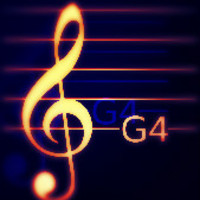Gary Hink
University of Colorado, Boulder, Program for Writing and Rhetoric, Faculty Member
- Electracy, Poststructuralism, Postmodern Literature, Digital Media & Learning, Digital Pedagogy, Literary Theory, and 16 moreLiterature and Humanities, Media Studies, Digital Humanities, Digital Rhetorics, Continental Philosophy, Digital rhetoric, Computers and Composition, Philosophy, Composition and Rhetoric, Multimodal Composition, New Media, American Fiction 1980 - present, Rhetoric of Technology, Philosophy and Rhetoric, Rhetorical Theory, and Participatory Cultureedit
- Digital Composition Faculty Program for Writing & Rhetoric University of Colorado Boulder Ph.D., English (2012) ... moreDigital Composition Faculty
Program for Writing & Rhetoric
University of Colorado Boulder
Ph.D., English (2012)
University of Florida
Dissertation: “Apparatus Theory and Heuretics of Literary Encounters.”
Chair: Gregory Ulmer.
Readers: Phil Wegner, Marsha Bryant; Jack Stenner (UF, Art + Technology)edit
Gary Hink, Ph.D. "Protocol Rhetoric, Electracy, and the Aesthetic Paradigm" << edited transcript >> Adobe Spark (supplemental): https://spark.adobe.com/page/hvAei/ Rhetoric Society of America Conference 2016 | Session C27: Rhetoric and... more
Gary Hink, Ph.D. "Protocol Rhetoric, Electracy, and the Aesthetic Paradigm"
<< edited transcript >>
Adobe Spark (supplemental): https://spark.adobe.com/page/hvAei/
Rhetoric Society of America Conference 2016 | Session C27: Rhetoric and Aesthetic
<< edited transcript >>
Adobe Spark (supplemental): https://spark.adobe.com/page/hvAei/
Rhetoric Society of America Conference 2016 | Session C27: Rhetoric and Aesthetic
Research Interests: Media Studies, Social Networks, Participatory Media, Digital Media, Visual Rhetoric, and 15 moreDigital Rhetorics, Rhetoric of Technology, Participatory Culture, Digital Culture, Rhetoric and Social Theory, Rhetoric and Public Culture, Digital Media And New Literacies, New Media Art, Rhetorical Theory, Digital Media Art, Electracy, Apparatus Theory, Dispositif (Apparatus-Theory), Social Media and Participatory Cultures, and The New Aesthetic
Research Interests:
Research Interests:
Research Interests:
A proposition, rather than a polemical argument; and one composed in the subjunctive or “as if” modality of art, rather than the diagnostic “as such” of descriptive analysis. Beginning as an epistemological inquiry, the point of departure... more
A proposition, rather than a polemical argument; and one composed in the subjunctive or “as if” modality of art, rather than the diagnostic “as such” of descriptive analysis. Beginning as an epistemological inquiry, the point of departure explores the “possibility of thinking in cinema through cinema”— ultimately producing an ontological theorization, with multiple implications. The notion of “thinking through” films, toward the production of concepts, is not metaphorical or analogical; rather, this serves as a key task, one that Gilles Deleuze has posed for us, through his practice of philosophy as constructivism, functioning to generate possibilities rather than to ossify established views. In this way my experimental and “metacritical” mode of inquiry proceeds, engaging with films that compel reconsideration and catalyze theorizations of new concepts: Lynch’s latest works, Mulholland Dr. (2001), and Inland Empire (2006)—as well as antecedents such as Lost Highway (1997), Maya Deren’s Meshes of the Afternoon (1943), Sunset Boulevard (Dir. Wilder, 1950), and Ingmar Bergman’s Persona (1966). With sensory logic rather than analysis, the theoretical image-body encountered is understood through film-thought as aesthetic, material, constructed, mediated, temporal, reflexive, and expressive.
Research Interests: Avant-Garde Cinema, Film Studies, Film Theory, Film Analysis, Philosophy of Film, and 11 moreGilles Deleuze, Women & Film, Feminist Film Studies, Film Aesthetics, David Lynch, Experimental Film, Poststructuralist Theory, Maya Deren, Cinema Studies, Deleuze and film studies, and History of Film Theory and Criticism
Research Interests:
Research Interests:
Research Interests:
Research Interests: Cultural Studies, Humanities, Poststructuralism, Literary Criticism, Academic Writing, and 9 moreHistory of Literature as a Discipline, Literary Theory, Jacques Rancière, Academia Research, Postmodernism, Interdisciplinary Higher Education, Writing in the Disciplines, Poststructuralist Theory, and English Department
Research Interests:
Formulaic Writing (?), Analytic Template 2: "Capitalist Representation & Film Aesthetics"
Research Interests:
Formulaic Writing, Analytic Template 1: "Psychoanalysis Theory & Films"
Research Interests:
Formulaic Writing, Analytic Template 3: "Feminist-Theory Analysis of Cultural Representation"
